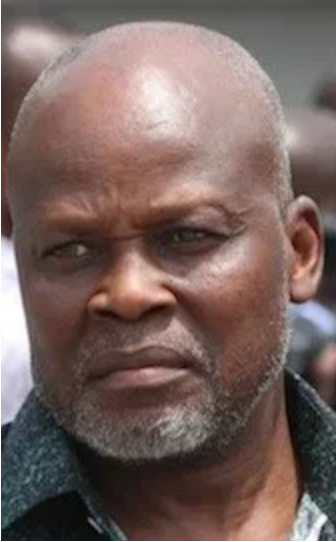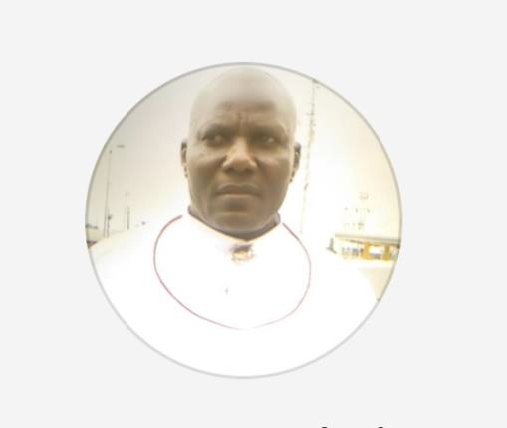
When my father, Captain Romeo Itima, founded Global West Vessel Specialist Limited (GWVS Ltd), he had a clear and noble mission—to protect Nigeria’s waters and build a legacy that would serve both our family and our nation for generations. After his sudden passing, leadership of the company was entrusted to his brother, my uncle Winfred Itima.
Initially, I believed my uncle would continue my father’s dream, safeguarding the legacy he worked tirelessly to create. Sadly, instead of unity and transparency, our family faced suspicion, silence, and betrayal.
Winfred was not wealthy during his life and career in the U.S. My father deeply loved our family, including Winfred, and wanted all of us to benefit from the company he poured his heart into. Global West was not just a business; it was created to uplift and support our family, providing opportunities that were previously out of reach.
My disappointment wasn’t about wealth or greed—it was about fairness, respect, and honesty. Being left in the dark and excluded from my father’s legacy was painful. My father’s intention was clear: to strengthen and unify our family, not divide it.
These words aren’t meant to deepen wounds or create further divisions. Instead, they’re here to share the truth, clarify misunderstandings, and initiate healing. I sincerely believe acknowledging the truth is the first step toward reconciliation.
My uncle’s actions do not have to define his entire legacy. My hope is that our story teaches others the importance of unity, transparency, and choosing family over conflict. Let this stand as a testament to the power of truth, and to Captain Romeo Itima’s enduring vision—a vision that valued family above all else.

Outside of my father, Winfred was the hardest-working man I’ve ever known. Despite my father’s persistent encouragement to strive for the rank of Captain, Winfred chose to remain a Bosun before eventually leaving to join my father at Global West. He spent countless hours at sea, dedicating himself entirely to his profession. I deeply admired him and everything he accomplished, and I believe his children should share in that pride.
In recognition of his hard work, Winfred was awarded the Merchant Marine Expeditionary Medal in 2002, an honor given to American merchant seafarers serving aboard U.S.-flag ships in support of military operations involving American and allied forces.
Because we lived together, our family had firsthand insight into Winfred’s financial situation before his involvement with Global West. While hard-working, he wasn’t wealthy, earning approximately $50,000–$90,000 annually, depending on the number of voyages he undertook. As he aged, the demanding 12-hour shifts aboard merchant vessels increasingly strained his body. Upon retirement, he received around $1,500 monthly from Social Security and had about $14,000 total in his pension. It was clear his retirement income would fall far short of what he had earned as an active merchant marine.
Winfred was not a wealthy man when he worked in the U.S. However regardless of how much money he made prior to taking over at Global West our not being a shareholder I know my father would have wanted share in the fruits of his labor. The company was meant to help his family and Winfred is Romeo’s family so he should be able to afford the things in life he couldn’t reach while working in the states. The only issue we ever had was being left in the dark and cut out from a fair share of Romeo’s labor.

Shortly after taking control of Global West, Winfred’s lifestyle significantly changed. He began purchasing multiple luxury cars and properties, all the while claiming that Global West wasn’t profitable. This raised obvious questions about how he financed these extravagant purchases.
Initially, we genuinely believed Winfred deserved to benefit from the company built by my father’s hard work. However, it became apparent that Winfred would not fairly compensate us or provide transparency about the operations of Global West. Instead, he prioritized elevating individuals like Olabis Idowu Afolabi (Bisi) and diverted company resources to other projects alongside Oyewole Olugbenga Leke.
We found ourselves alienated from our father’s legacy, unable to obtain clarity or fairness. After years of unsuccessful efforts to reason with Winfred, we ultimately sought legal recourse. Winfred assumed the position of Managing Director in August 2012, but we did not initiate our first lawsuit until 2017.


Throughout the legal struggle, I repeatedly sought intervention from my father’s brothers, particularly William Itima, whose help I earnestly requested on multiple visits to Nigeria. Despite presenting clear evidence of Winfred’s actions and pleading for a family meeting, my efforts proved fruitless.
In 2020, as another lawyer appeared to be succumbing to similar pressure or influence, I once again traveled to Nigeria, desperate for my uncle William’s support. Shockingly, during our meeting, William angrily confronted me about publicly revealing the family’s unwillingness to help. He went as far as having someone threaten to kill me and my mother if we didn’t drop the lawsuit, unfairly accusing my mother of instigating the lawsuit because she “ran out of money.” This accusation was utterly false; my mother consistently urged me to abandon the issue, fearing I’d lose my life over the company, just as my father had.
William’s betrayal was deeply painful, particularly given our previously close relationship. His cruelty and willingness to blame my innocent mother added to an already profound sense of loss and betrayal. The inclusion of my mother’s name in the lawsuit was purely procedural, as management of my father’s estate was in both our names.


Captain Romeo Itima was a pioneering U.S. Merchant Marine Captain and visionary leader who revolutionized Nigeria’s maritime industry. His legacy of courage, sacrifice, and empowerment endures as a beacon of justice and resilience.
© 2025. All Rights Reserved
